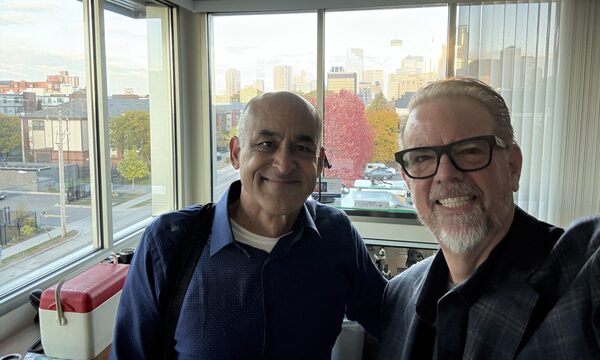This post stems from the Kern reading group on Faith, Work and Economics at Talbot, a small group comprised of Talbot and Crowell faculty that discusses the intersection of the Christian faith with issues like poverty, work, economics and justice.
“Does time dedicated to working in the secular world endanger our souls?”
In his chapter “The Problem of Meaning and Related Problems: Four Voices in a Pastoral Theology of Work” in Work: Theological Foundations and Practical Implications, Chris R. Armstrong asks this important question. Armstrong suggests that all too often American Christians have given up finding spiritual meaning in their work and in their ordinary lives. At best, we try to bring spiritual attitudes, such as selflessness and patience, into the workplace or use the money we earn to support spiritual things. There is a tendency, all too often, to divide the sacred from the secular, not fully recognizing, as Pope Gregory the Great (504-604) did, that God has called us to we live a “mixed life” of spiritual contemplation and activity in the world. In other words, we are to see our engagement with the world as not necessarily at odds with our spiritual life. Gregory sought to promote a synthesis between the two realms, insisting that God is present each. In his Pastoral Rule, the spiritually minded Pope taught monks how to find intimacy with God amidst the busyness of life. He insisted that God can even use our vocations to deepen our spiritual lives. When our lives are marked by active engagement in the world, such as working to care for the poor or to teach the ignorant, we are better equipped to experience God in prayer and contemplation. Yet, how does this synthesis help us to understand the suffering that we experience in our active engagement with the world?
Unfortunately, our attempts to integrate the sacred and the secular aspects of our lives can sometimes lead us to hold to a prosperity Gospel. We can begin to believe that if we fulfill our God-given vocational calling, God promises contentment and success (both materially and spiritually). In other words, we expect God to reward those who work hard. We read passages such as Psalm 128:2, “You will eat the fruit of your labor; blessings and prosperity will be yours.” as an affirmation of this. All too often, however, this is not our daily experience. Instead of vocational bliss, we face hardships such as stress, depression, temptation, burnout, bullying, isolation, low pay, and lack of acknowledgment in our jobs. These negative experiences can lead us to question the goodness of God or conversely to view the secular, material world as inherently evil and dangerous to the soul. Yet, Scripture is clear that neither of these perspectives is true. God is a good God (Ps. 119:68), God fulfills his promises (Josh 21:45), and God is never the source of evil or temptation (James 1:13).
James 1:13 makes this clear, warning us that we must not blame God: “Let no one say when he is tempted, ‘I am being tempted by God,’ for God cannot be tempted with evil, and he himself tempts no one.” While the book of James clearly alerts us to the dangers of the world, proclaiming “don’t you know that friendship with the world means enmity against God?” (4:4), it also points out how God can use the world and our suffering, to help us grow. James implores us to “consider it pure joy” when we “face trials of many kinds.” Why? Because the testing of our “faith produces perseverance” and perseverance helps mature and complete us. Suffering is not only an unfortunate reality, but to be expected if we are followers of Christ. Jesus Christ, experienced suffering, rather than earthly prosperity in his earthly ministry. Gregory of Nazianzus speaks of this writing:
He began His ministry by being hungry, yet He is the Bread of Life. Jesus ended his earthly ministry by being thirsty, yet He is the Living Water. Jesus was weary, yet He is our rest. Jesus paid tribute, yet He is the King. Jesus was accused of having a demon, yet He cast out demons. Jesus Wept, yet He wipes away our tears. Jesus was sold for thirty pieces of silver, yet He redeemed the world. Jesus was brought as a lamb to the slaughter, yet He is the Good Shepherd. Jesus died, yet by His death He destroyed the power of death.
Christ, the eternal King, came to earth as the suffering servant, humbling himself, being obedient to the point of death on the cross (Phil 2:3-11). Christ faced many challenges in his work. While he tasted the sweetness of being hailed King on Palm Sunday, he also experienced the bitterness of rejection on Good Friday in order to bring about victory on Easter Sunday. Without the suffering of Good Friday, there would be no Easter.
We, like the Suffering Servant and Eternal King, are called to just such a “mixed life.” One of contemplation and active engagement in the world. We, like Christ, are called to pick up our cross and to expect to suffer in our engagement with the world, recognizing that God can use the suffering inflicted upon us to glorify Him. In speaking to his disciples, Christ says “In this world, you will have trouble. But take heart! I have overcome the world.” (John 16:33). Not only can we have confidence in Christ’s victory, but that when we participate in Christ suffering, we have the opportunity to grow in Christ-likeness and glorify Him. (Phil 3:10; Rom. 5:3)
 Biola University
Biola University



.jpg)